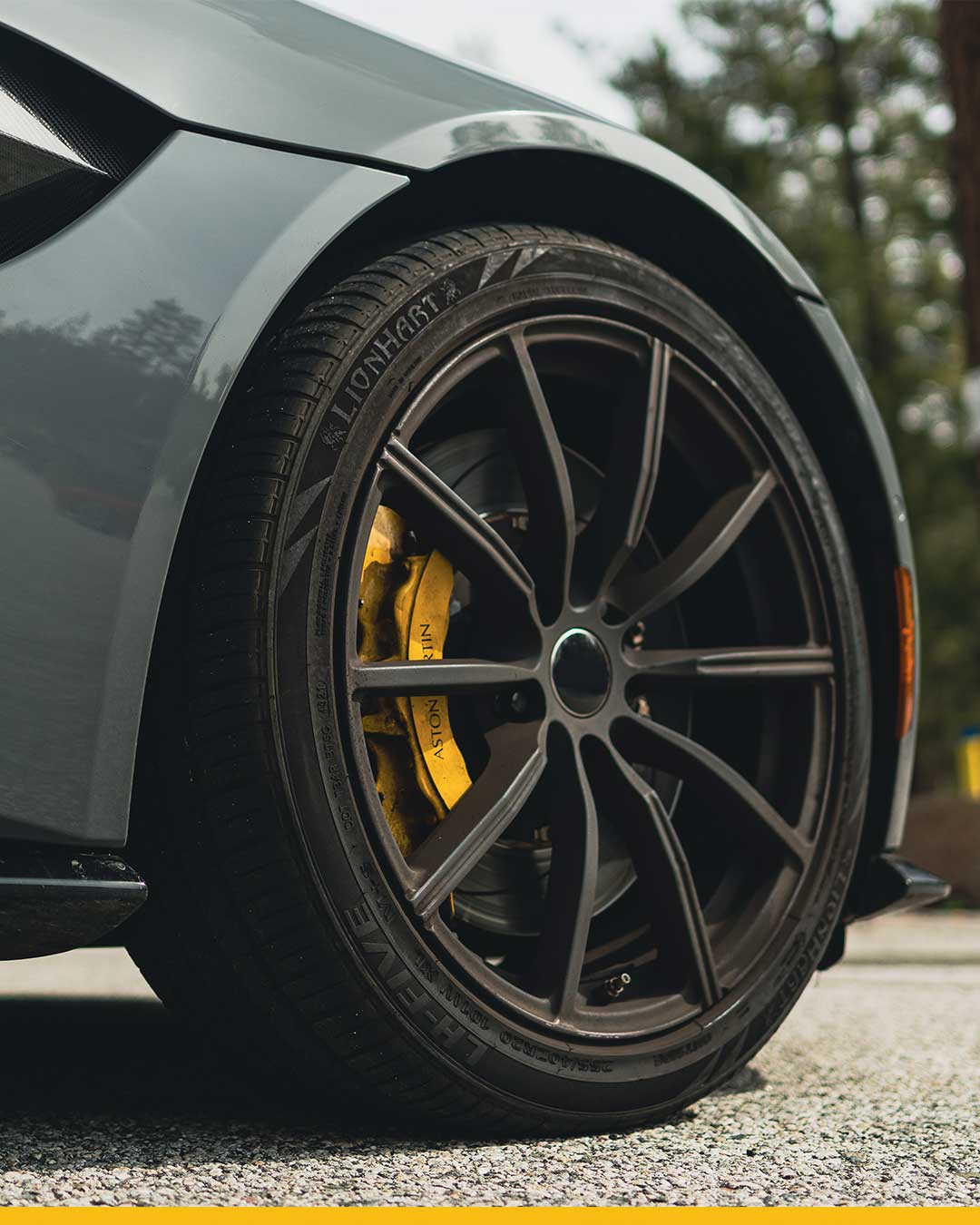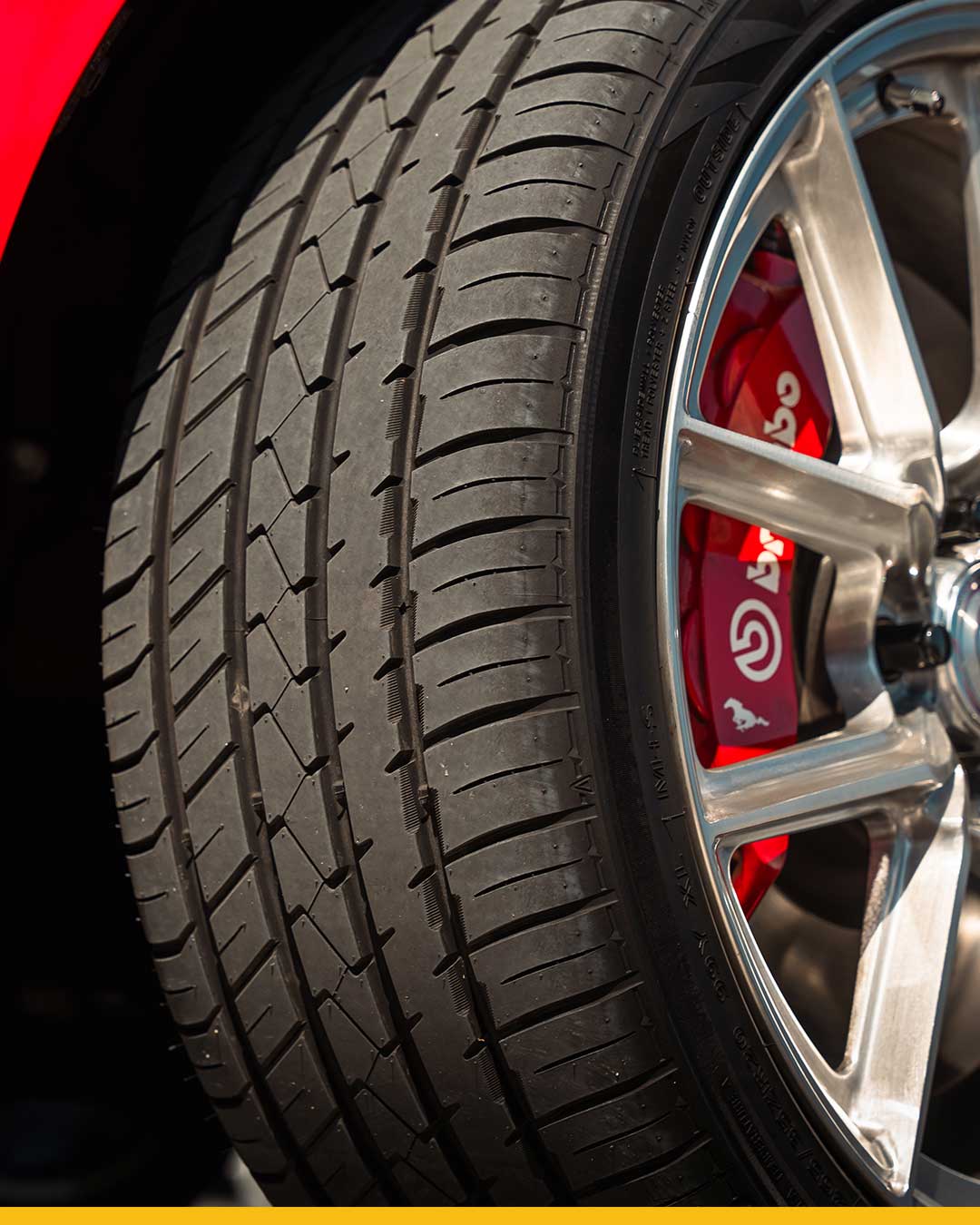Everything You Need To Know About Performance Tires
Ever wonder what separates a performance tire from your standard all-season rubber?
Whether you’re a weekend racer or someone who loves the thrill of hugging corners, performance tires are engineered to take your driving experience to the next level. In this guide, we’ll break down what makes these tires so special, why they matter for driving enthusiasts, and what you need to know before picking the perfect set.
Let’s hit the road and dive into the world of high-performance tires.
Grip and Compound:
Sticking to the Asphalt Like a Pro
When it comes to performance tires, grip is the name of the game.
These tires are made with special rubber compounds designed to stick to the road, especially in dry conditions. Lionhart’s LH-Five Performance Tire is a great example of this, featuring an advanced silica compound that enhances grip and responsiveness on the road. The softer, high-performance compound used in these tires sacrifices tread life for that coveted road-hugging ability, so they’re perfect for drivers who want maximum control.
The Lionhart LH-Five is particularly great for high-performance vehicles, offering an ideal balance of grip and handling at higher speeds. If you’re all about feeling the road under your wheels, this is a tire that won’t disappoint.
Pro Tip: Performance tires like the LH-Five actually get stickier as they heat up, meaning the more you drive, the better they perform.
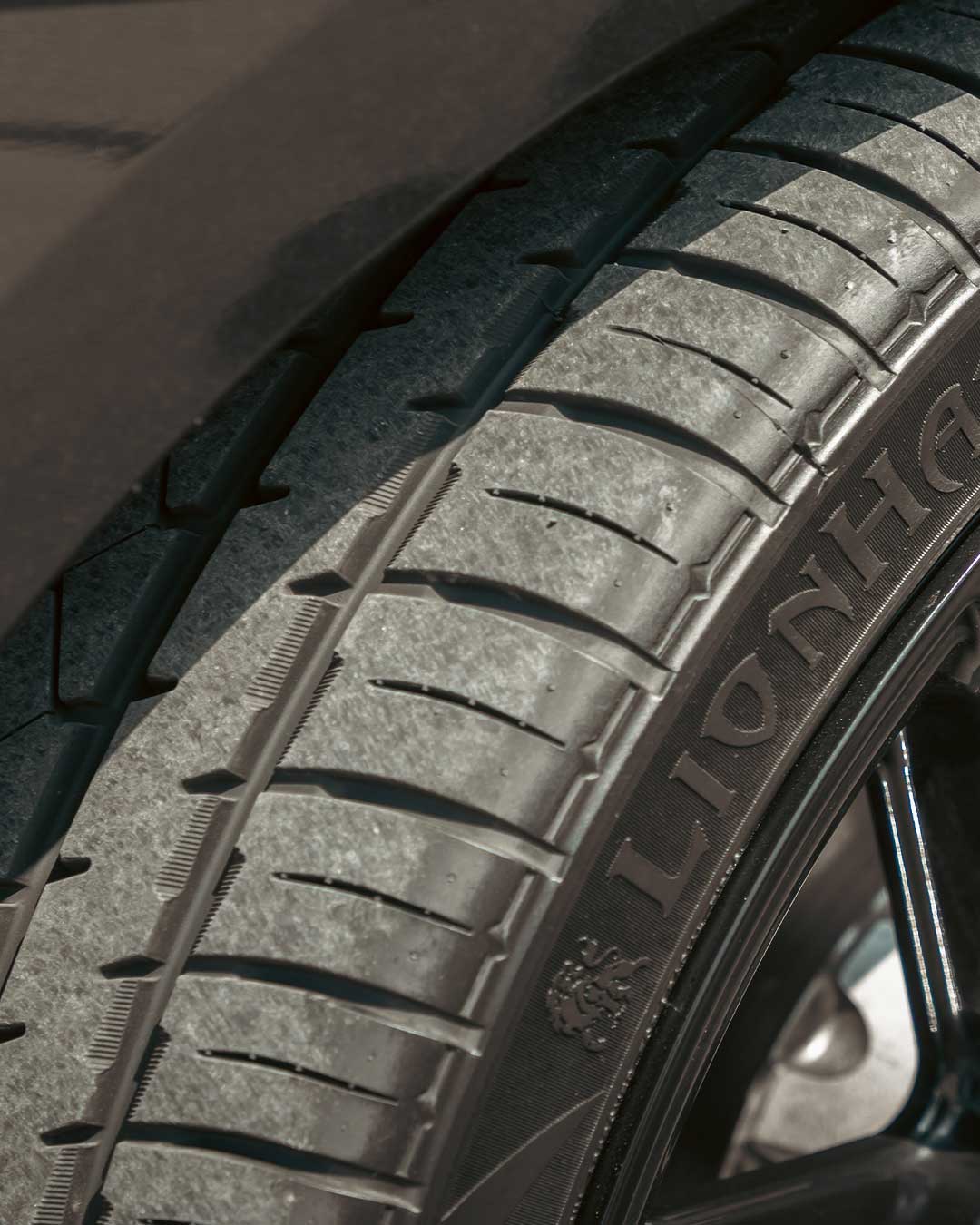
Tread Patterns:
Designed for Precision
Take a close look at the tread pattern on any performance tire, and you’ll notice it’s different from your everyday all-seasons.
The tread is shallower and designed for maximum contact with the road, especially in dry conditions. For example, the Lionhart LH-Ten UHP (Ultra-High-Performance) tire features an asymmetric tread design that enhances cornering and stability, even at high speeds.
Lionhart tires, like the LH-Ten, use strategic tread designs to channel water away and resist hydroplaning, offering solid performance in wet conditions too. But their true strength lies in the dry grip—so if you’re tearing up the highway or tackling tight curves, these tires will hold the line.
Pro Tip: Less tread means more surface area in contact with the road, which equals better grip, but always check your tread wear indicators to ensure safety.
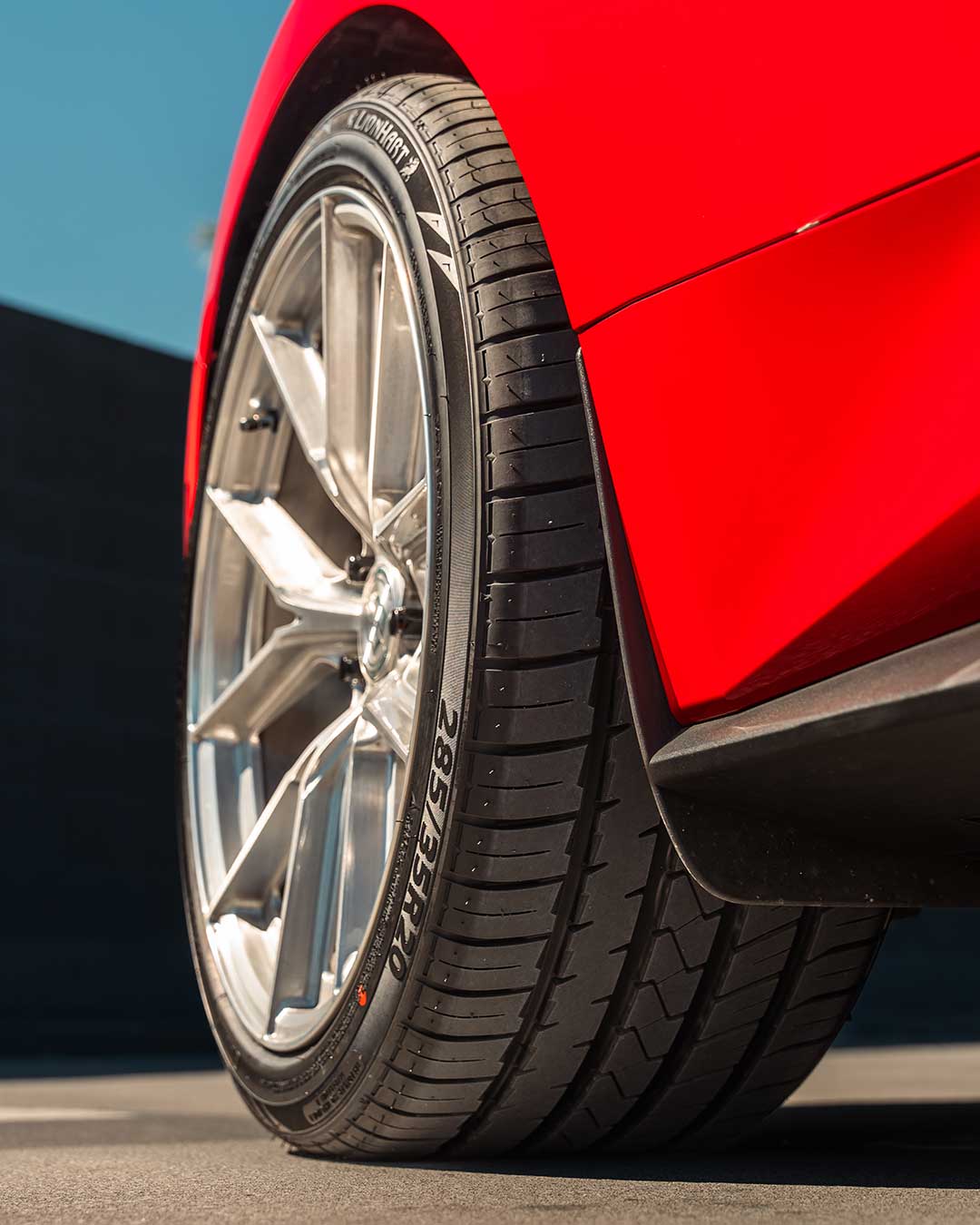
Sidewall Stiffness:
Hold on Tight!
One of the key differences in performance tires is their stiff sidewalls.
This added rigidity helps reduce flex when you’re cornering or accelerating hard, giving you more control over your vehicle. The Lionhart LH-503 High-Performance Tire features reinforced sidewalls, perfect for enhancing handling during aggressive driving.
Stiffer sidewalls also mean more direct feedback from the road, letting you feel every turn and maneuver.
While that may lead to a slightly stiffer ride, the trade-off is more stability during spirited driving, which makes the LH-503 an excellent choice for drivers looking to maximize handling without sacrificing too much comfort.
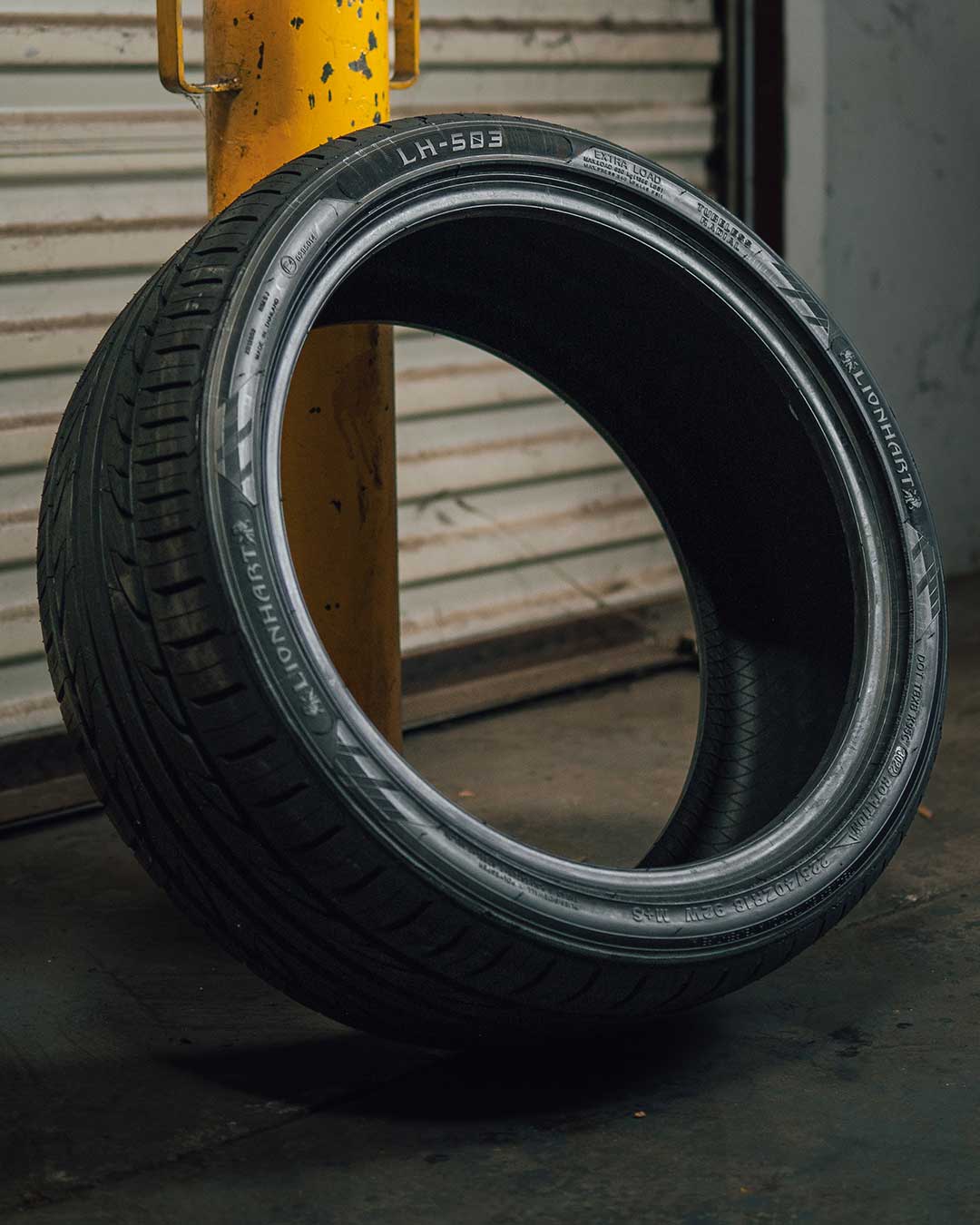
Speed Rating:
Built for the Need for Speed
Not all tires are built for high speeds, but performance tires are.
They come with higher speed ratings, ensuring they stay intact and perform well even at top speeds. For instance, the Lionhart LH-Five has a ZR speed rating, meaning it’s designed to handle speeds over 149 mph. This makes it perfect for high-performance vehicles and drivers who love pushing the limits—whether on the track or just open stretches of highway.
The speed rating is crucial in performance driving, as it ensures the tire can handle heat and stress from high-speed maneuvers. Lionhart’s focus on speed performance makes tires like the LH-Five and LH-Ten popular among performance enthusiasts.
LEARN MORE ABOUT TIRE SPEED RATINGS
NOTE: Even though these tires are designed for speed, always remember to follow local speed limits and drive responsibly!
Heat Resistance:
Keep Your Cool
Fast driving generates a lot of heat, and performance tires are built to withstand it.
The Lionhart LH-Five and LH-503 High-Performance Tire use specialized heat-resistant compounds to handle the extra stress from high speeds and aggressive driving. Their ability to maintain grip and control even when the tires heat up makes them ideal for both daily driving and track days.
The key to performance tires like Lionhart’s is their ability to maintain structural integrity and road grip even when the going gets hot—whether you’re on a mountain pass or hitting straightaways at speed.
Think of performance tires as your favorite pair of athletic shoes—designed to perform under pressure, and the hotter the action, the better they work!
So, what makes a performance tire a performance tire?
It’s all in the details—from the specialized rubber compounds and precision-engineered tread patterns to the stiff sidewalls and heat resistance. Tires like the Lionhart LH-Five and LH-Ten exemplify everything a performance tire should be: grippy, responsive, and built for speed. If you’re ready to take your driving experience to the next level, upgrading to a set of performance tires will make every corner more thrilling and every straightaway an opportunity to feel the road like never before
FAQs: All About Performance Tires
What makes a performance tire different from regular tires?
Performance tires are designed with softer rubber compounds and stiffer sidewalls, giving them better grip and handling in dry conditions. They also have specialized tread patterns optimized for speed and cornering, whereas regular tires prioritize longevity and comfort.
Are performance tires good for everyday driving?
While performance tires can be used for daily driving, they are best suited for those who want enhanced handling and a sportier feel. However, they tend to wear out faster than all-season tires and may not perform as well in extreme weather conditions like snow or ice.
How long do performance tires last?
On average, performance tires tend to wear out faster than all-season tires due to their softer rubber compounds. Depending on driving habits, road conditions, and tire maintenance, they may last between 20,000 to 40,000 miles. Regular tire rotations and proper inflation can help extend their lifespan.
Can I use performance tires in the rain?
Yes, many performance tires, like the Lionhart LH-Ten UHP, are designed to handle wet conditions. They have tread patterns that help channel water away to prevent hydroplaning. However, they perform best in dry conditions, so if you live in an area with frequent rain, consider an all-season tire for more balanced performance.
Are there budget-friendly performance tires available?
Yes! Brands like Lionhart offer excellent performance tires that provide high-quality grip, handling, and speed ratings at affordable prices. The Lionhart LH-Five is a great example of a cost-effective tire that doesn’t compromise on performance.


